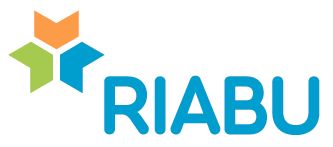Blog post -
Lessons for suppliers from the Evergrande saga
By now, even those with a passing interest in financial news would have heard of Evergrande, the Chinese real estate company that has over US$305 billion of debt. With recent regulations in China that limit some developers’ ability to access financing, Evergrande is struggling to pay down its debt and maintain enough cash flow to stay afloat.
This story is a multi-faceted one, encompassing everything from the Chinese government’s changing approach to managing its economy, to questions about whether the collapse of this company could trigger global consequences much like the collapse of American investment bank Lehman Brothers did in 2008. But in this article, we would like to focus on something that RIABU has always felt strongly about — the devastating damage that late or non-payments from a large company can wreak on their smaller suppliers, and how this can be avoided by changing the way suppliers handle customer relationships.
Want to know more about this topic? Listen to RIABU's Simon Littlewood and Mark Laudi discuss this issue on our podcast, Be First In Line To Get Paid:
A subcontractor who provided landscaping services for an Evergrande development said his company is owed over US$2.3 million for work done over the past two years. Left with no other recourse, he brought his workers to an Evergrande sales office to stage a protest and demand payment. Speaking to Nikkei Asia, he said that these workers were owed months of salary.
Indeed, another report by Reuters stated that many of Evergrande’s suppliers have been “left on the hook”. The news agency interviewed one such supplier, the owner of a cleaning business who is owed over US$3million by the company. Evergrande accounts for 90% of his business. To pay his employees’ wages and keep his firm alive, he has sold his car and apartment to raise cash. "We've reached out to those in charge but they either say they have no money or don't know when they can settle the payments," this business owner said.
This cleaning business had started to run into problems with Evergrande in June, the owner said. That’s when payments on commercial paper issued by Evergrande stopped. Commercial paper is a type of unsecured, short-term debt instrument issued by corporations, typically used to finance things such as payments to suppliers.
One of the key ideas that we elaborate on in our book Let The Cash Flow is the Virtuous Revenue Cycle (VRC), which comprises key steps in effective revenue management. Taking risk seriously is a big part of this. That means evaluating customers’ credit-worthiness at the beginning of your relationship with them, and continuing to monitor this throughout the relationship.
By doing so, it will be easier to discern when a customer’s fortunes have changed, and that means you can take action to mitigate your exposure. A change in their payment patterns is often a red flag, and a team trained in building customer intimacywill know how to gather commercial intelligence about possible risks, through site visits and discussions with staff, or even discussions with competitors.
In other words, by the time you are left with no other choice than to sell your assets or stage protests to demand owed payments, it is likely already too late. Constant and consistent communication is necessary for spotting potential problems your customers may be grappling with, before they become your problems too.
Get more tips on effective cash flow management from our book, Let The Cash Flow. To find out more about how RIABU helps small businesses get paid on time, visit RIABU.com
Topics
- Business enterprise, General
Categories
- smes
- suppliers
- evergrande
- riabu
- late payments
